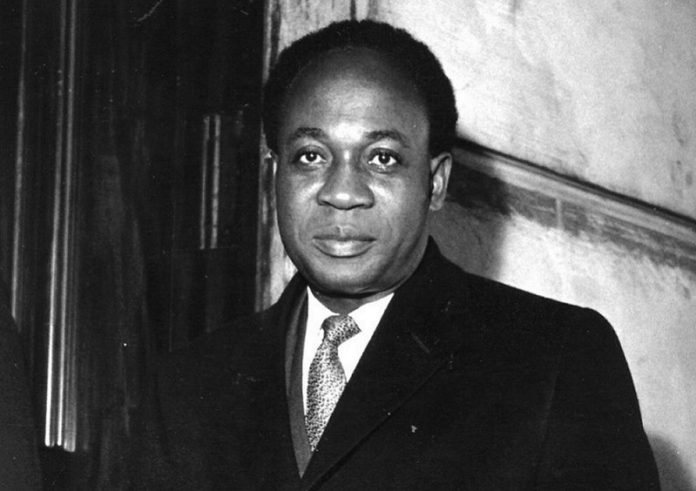Every political generation repeats the same mistake: the people who fear change call the reformer a “stranger.” It is a pattern as old as Ghana’s independence struggle and as new as yesterday’s headlines.
And today, as parts of the New Patriotic Party whisper that Dr. Mahamudu Bawumia is a stranger in his own political home, history echoes loudly, warning us that the last person you call a stranger today often becomes the one who reshapes your tomorrow.
Kwame Nkrumah was once that stranger. When he returned from America and Britain—young, restless, radical, and unapologetically determined—the colonial-era elites of the UGCC looked at him with suspicion.
He did not belong to their wealthy families. He did not speak their polished colonial English. He mobilised market women and workers instead of mingling with aristocrats. He was Nzema from the Western Region, neither Ashanti royalty nor Fante aristocracy. They tolerated him until they realised he was unstoppable, and then they called him an outsider. But the man they dismissed as “not one of us” built a nation and became the heartbeat of Africa’s liberation.
The same script played out decades later in America. Barack Obama emerged from Chicago’s streets with a name the political establishment struggled to pronounce. His father was Kenyan, his mother from Kansas. His identity confused old Washington. They said he was too young, too intellectual, too different, too hopeful. They called him “other,” they questioned his belonging. The stranger became the President. And eight years later, the world remembered not the accusations but the hope.
Zohran Mamdani’s story recently shook New York. Born in Kampala to Indian parents expelled by Idi Amin, raised between continents, and too progressive for the city’s traditional political machinery, he had all the markings of an outsider. His age, his faith, his energy, his name—everything placed him outside the predictable mould of New York’s leadership class. Yet in 2025, the world’s most complex city elected him mayor. Why? Because youth recognise value, promise, and competence long before gatekeepers do. Outsiders speak the language of tomorrow; insiders recite the slogans of yesterday.
Which brings us home—back to Ghana, back to the NPP, back to Dr. Mahamudu Bawumia.
For seventeen years, Bawumia has stood at the party’s core, shaping economic messaging, defending electoral integrity at the Supreme Court, mobilising national policy, and carrying the digital transformation agenda that quietly repaired decades-old inefficiencies. He has been at the party’s side in victory and in defeat. He has campaigned in every region, worshipped in every faith setting, endured every insult, and carried every responsibility given to him—loyally, competently, consistently.
And yet, in a moment of political anxiety, a few voices have found confidence in calling him a stranger.
Stranger to what?
To service?
To loyalty?
To sacrifice?
To the party he helped deliver two consecutive presidential victories?
Or stranger to the old entitlements that fear modernisation?
The youth of the NPP know the answer. And they know the danger.
In a world ruled by algorithms, not ancestry, who leads matters. Ghana is entering an age where governance is digital, public services are automated, and leadership demands competence that transcends tribal politics. The youth recognise that the politics of exclusion is a luxury Ghana cannot afford. They know that shrinking the party’s leadership options based on region or lineage is political suicide. A party that claims to be the most national cannot afford to indulge the most primitive instincts of tribal whispering.
What the elders call “stranger,” the youth call “modern.” What the insiders call “outsider,” the youth call “competent.” What those afraid of change call “not one of us,” the youth recognise as the future.
Because the real stranger is not the man who has served seventeen years. The real stranger is the one who divides when unity is required. The real outsider is the voice that shrinks the party’s vision to the size of fear. The real threat is not a northern economist who digitised government, but the tribal rhetoric that threatens to drag the party backwards into a past it once worked hard to escape.
The Danquah–Dombo–Busia tradition is not a story of exclusion; it is a story of men who challenged exclusion. Danquah confronted colonial elites. Busia bridged intellectual communities. Dombo, himself once marginalised, became an embodiment of inclusion. The tradition was never tribal; it was ideological. To call Bawumia a stranger is to misunderstand the founders.
And so, the NPP faces a choice—not between one candidate and another, but between the future and the past, between inclusiveness and insecurity, between the energy of youth and the fear of old politics.
History has shown, again and again, that the one they call stranger today becomes the one whose leadership defines tomorrow. Nkrumah proved it. Obama proved it. Mamdani proved it. The youth of the NPP understand that Ghana’s future will not be built by gatekeepers afraid of innovation but by reformers unafraid of possibility.
Dr. Mahamudu Bawumia is not a stranger. He is the modern Ghanaian story—multi-regional, multi-ethnic, globally exposed, digitally fluent, nationally committed. He represents a Ghana that is bigger than tribe, stronger than region, and ready to compete globally.
If the NPP embraces fear, it will fracture itself into irrelevance.
If it embraces competence, it will secure its future.
History has spoken.
The youth must answer.



